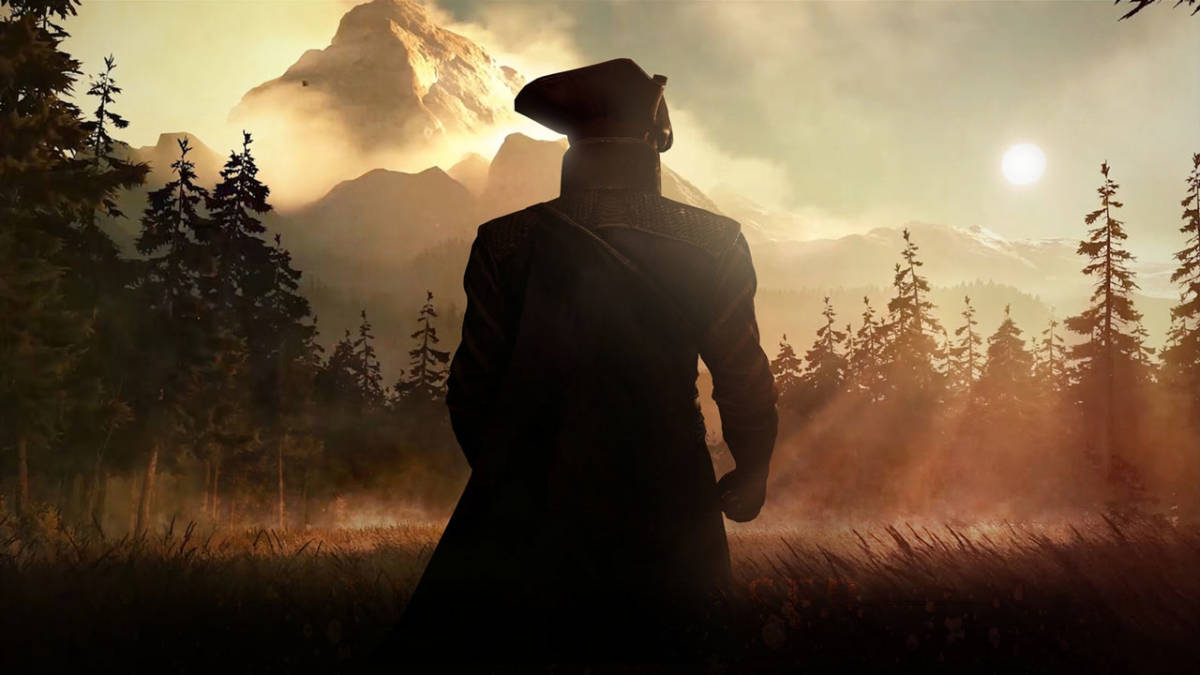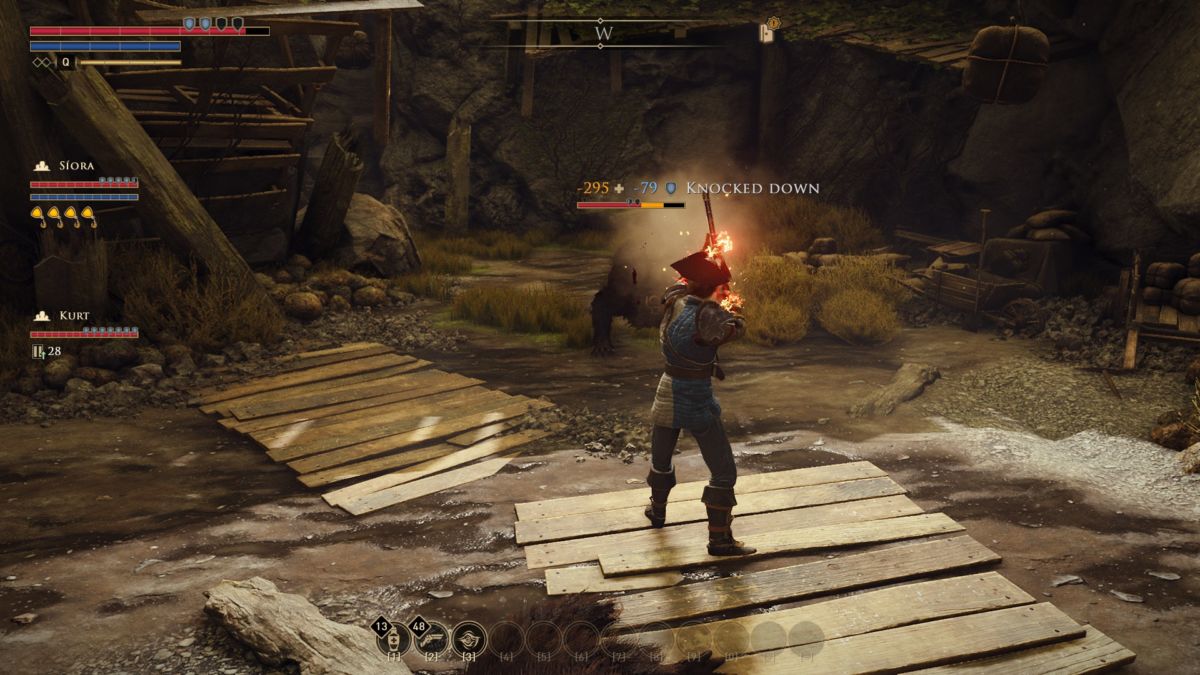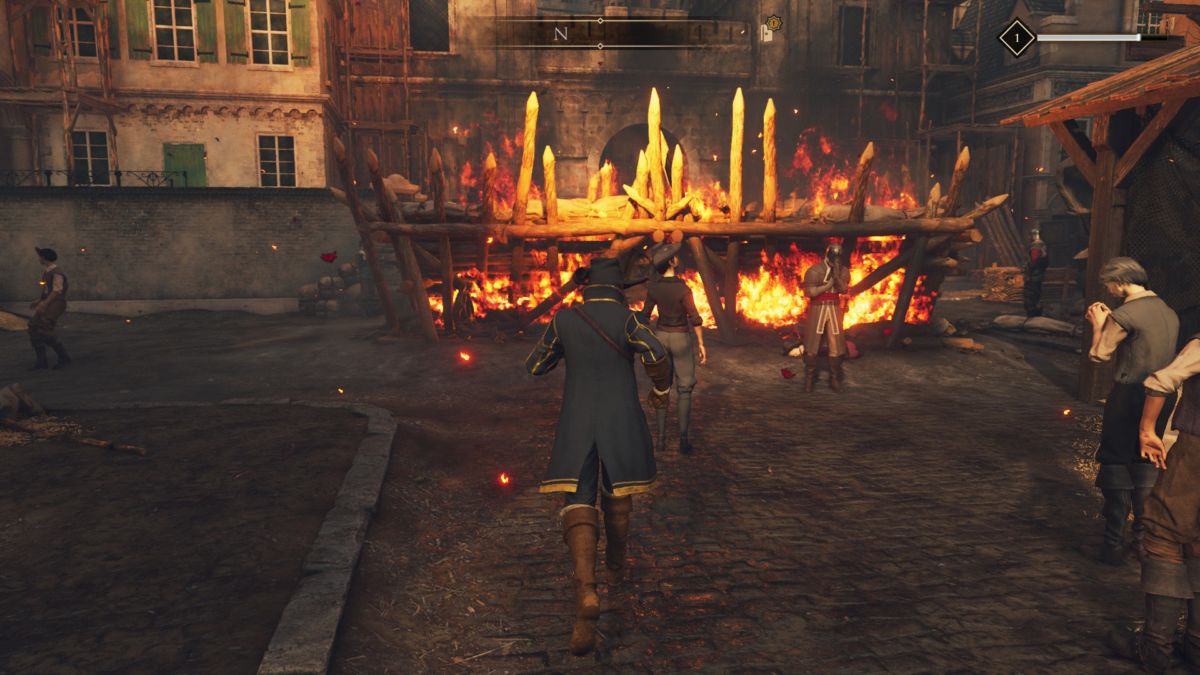Greedfall is tomato soup.
This is the analogy I found myself using during a recent conversation with a friend about French developer Spider’s new AA RPG, released earlier this month.
The game, set on the mysterious island of Teer Fradee and revolving around the adventures of charming ambassador De Sardet in a fairly unique gunpowder and sorcery setting, harks back to the days of true, player choice-driven RPGs from the likes of BioWare and Bethesda.
GreedFall features dialogue options and a branching story based on player choice. As the legate of the Merchant Congregation, you must maintain the fragile balance on Teer Fradee between the scientific and analytical Bridge Alliance and the zealous Thélème, while at the same time protecting (or hurting) the innocent natives in the process via your words and actions.
Greedfall lacks any form of multiplayer or online mode, and there isn’t a sniff of ‘live service’ hocus pocus to be found, with a truly single-player experience at its heart.
This attempt to recreate the magic of a long neglected style of game, with a laser focus on offline, player-driven experience has drawn the ire of critics who say it does little to innovate or change the game.
And this brings me back to tomato soup.
I like tomato soup. It’s a wonderful thing, the ideal perfect meal for a cold winter night or when your cupboards are bare and you can’t face another bowl of packet ramen. It’s a solid, reliable meal.
No one would say tomato soup is innovative. Sure, there are attempts to make it innovative, brands who take the core product and try to jazz it up with new features (sorry, herbs or ingredients), but Heinz tomato soup will always be the mainstay. Why? Because it’s a classic, filling meal.
Tomato soup will forever be someone’s favourite meal, and there will always be a demand for it, no matter how the rest of the soup industry develops with – occasionally questionable – advances such as online services or loot boxes. So why is it such a crime for a company to make classic tomato soup?
OK, the soup analogy has probably run its course now.
I certainly won’t put my neck on the line and say that Greedfall is a great game. It probably won’t be remembered fondly alongside the greats of the genre such as BioWare’s Dragon Age: Origins, or CD Projekt Red’s The Witcher 3, though I can certainly see it developing a solid cult following thanks to the dedication and passion that has clearly been invested.
Greedfall is a janky, hit and miss joyride through a well realised world featuring occasionally dodgy gameplay and awful localisation, typical of many AA games where budget is not unlimited and developers are forced to make tough decisions regarding where they allocate their money.
Despite this, however, I am thoroughly enjoying it. Ever since BioWare – the company that first inspired my love of video games with the likes of Commander Shepard and the world of Thedas – began collapsing into a black hole for whatever reason, and other developers began throwing every innovative mechanic they could think of at the wall to see what sticks, I have been looking for an exciting, interactive narrative experience where story and player choice are the focus.
But The Witcher 3, you cry, that was a brilliant narrative RPG. No multiplayer either. Absolutely right. TW3 is a generation highlight and an example of what a company with a fondness for narrative-driven games can do with a big enough budget and team. It was also released in 2015, almost 5 years ago, an eternity in this business. The games industry is a different place now, a place of acronyms like GaaS and IAPs. It remains to be seen how well CDPR’s new IP, Cyberpunk 2077, fares in this climate.
Sure, but what about games like God of War? Surely they show that there is still support for narrative-driven epics. Absolutely .But GoW wasn’t a classic RPG. The story was truly fantastic, but it will always play out the same way. Kratos and Atreus will always go up and down the same mountain. The only way you can change the world around you is by hitting stuff with a big axe.
Player-driven RPGs, notably third-person (I loved Divinity II, but isometric games don’t scratch the same itch) are few and far between lately. And perhaps that’s because when a company attempts something like this, as with Spiders and Greedfall, they are criticised as being unoriginal or regressive.
Perhaps Greedfall runs too closely to its influences, but those same influences are some of the most fondly remembered properties in gaming history for a reason. Maybe those same games would struggle to make an impact on the games industry of today because their focus on player choice and consequences is, for some reason, now considered financially unattractive by publishers.
However, as a vehicle to carry the player through a colourful and unique world (though, the less said about questionable colonial overtones and dodgy accents, the better) whilst offering the player some semblance of control over events, Greedfall deserves respect, as do Spiders for attempting to contribute to a genre that has been unfairly neglected recently in favour of more profitable mechanics.
Spiders have stated that they want to be the next BioWare, and in a world where the real BioWare is shipping miss after miss by chasing questionable innovation in the form of games as a service, I say good luck to them.
Because, sometimes, in a world of modern gourmet dining, you just want a nice bowl of classic tomato soup. And that’s OK.
I want soup now.
Some of the coverage you find on Cultured Vultures contains affiliate links, which provide us with small commissions based on purchases made from visiting our site. We cover gaming news, movie reviews, wrestling and much more.






